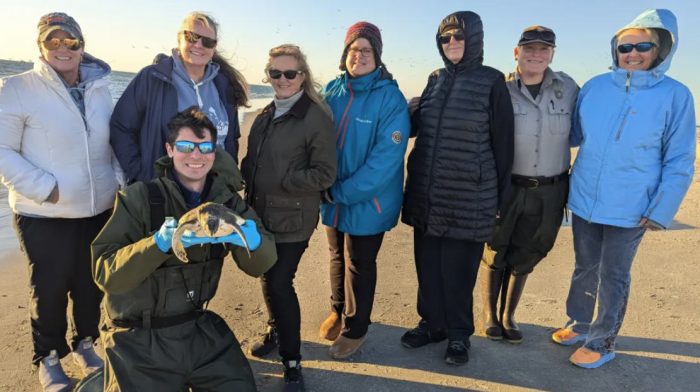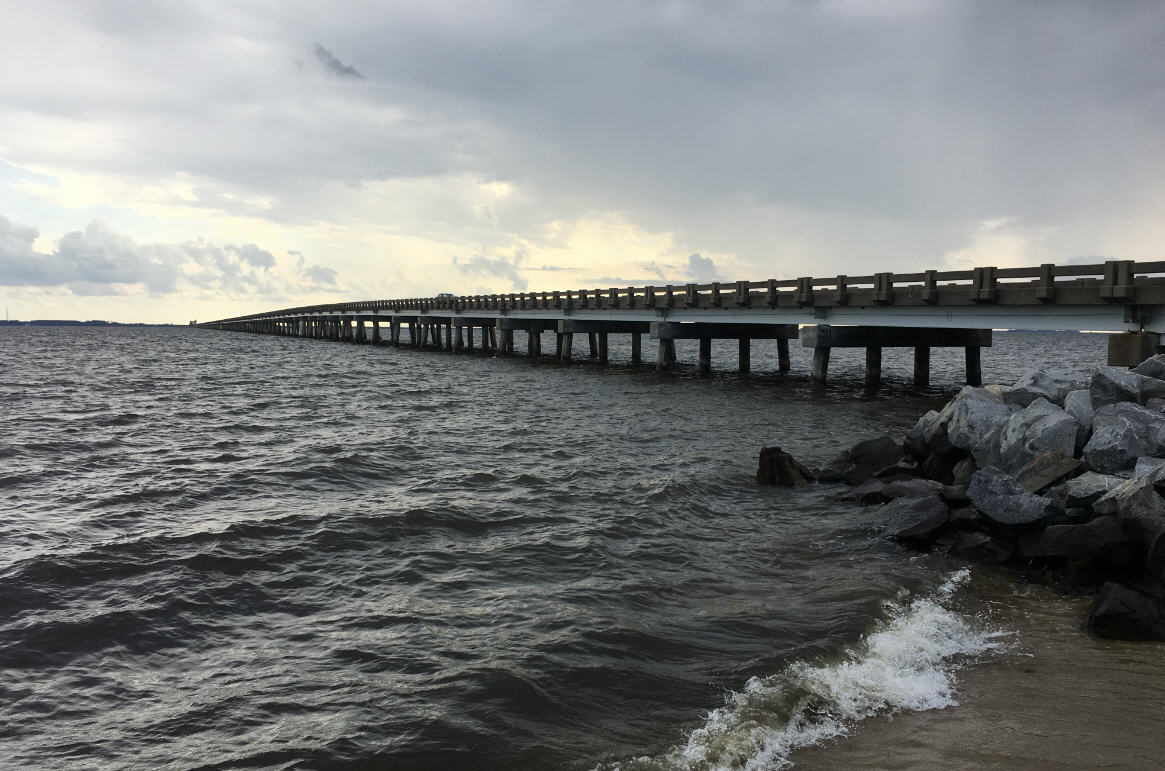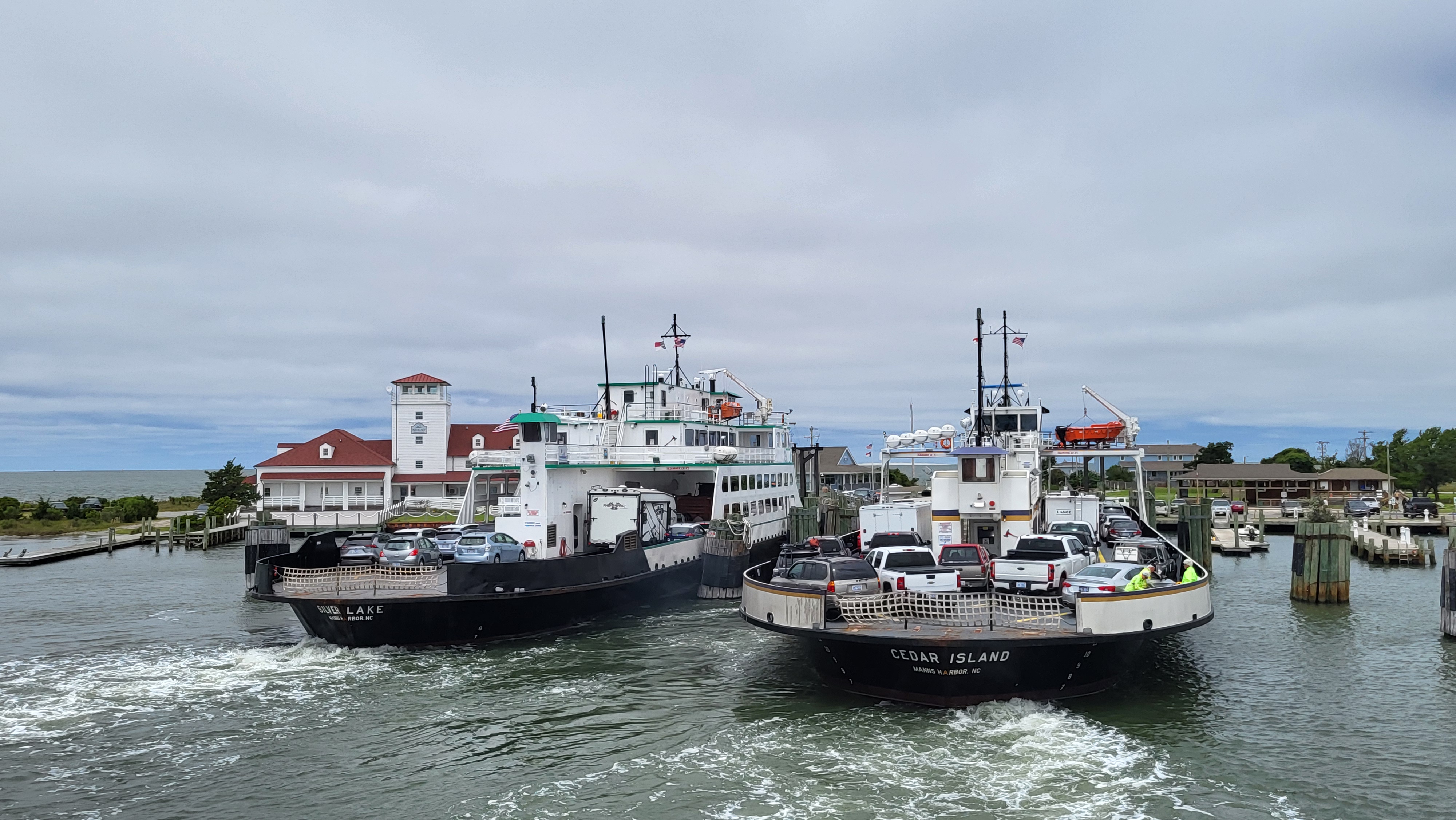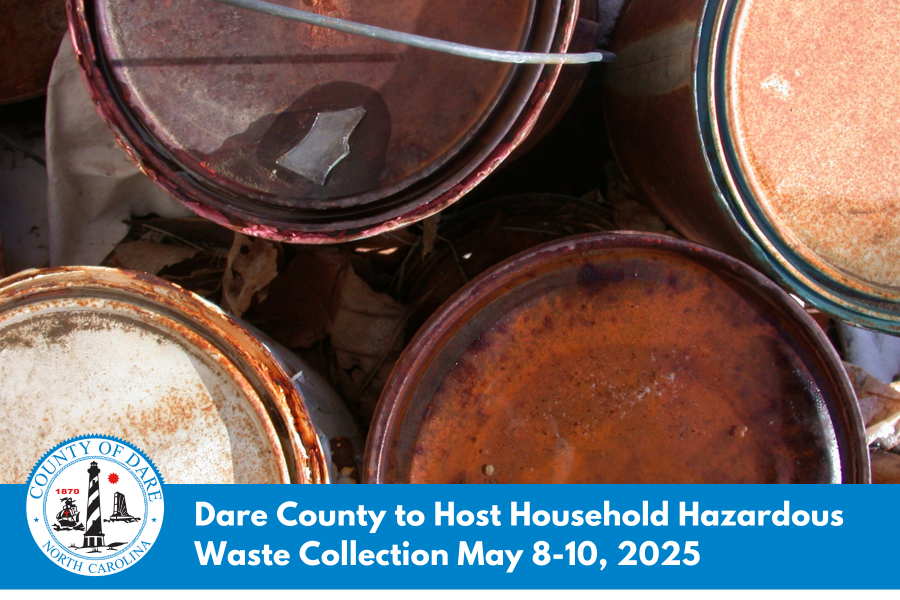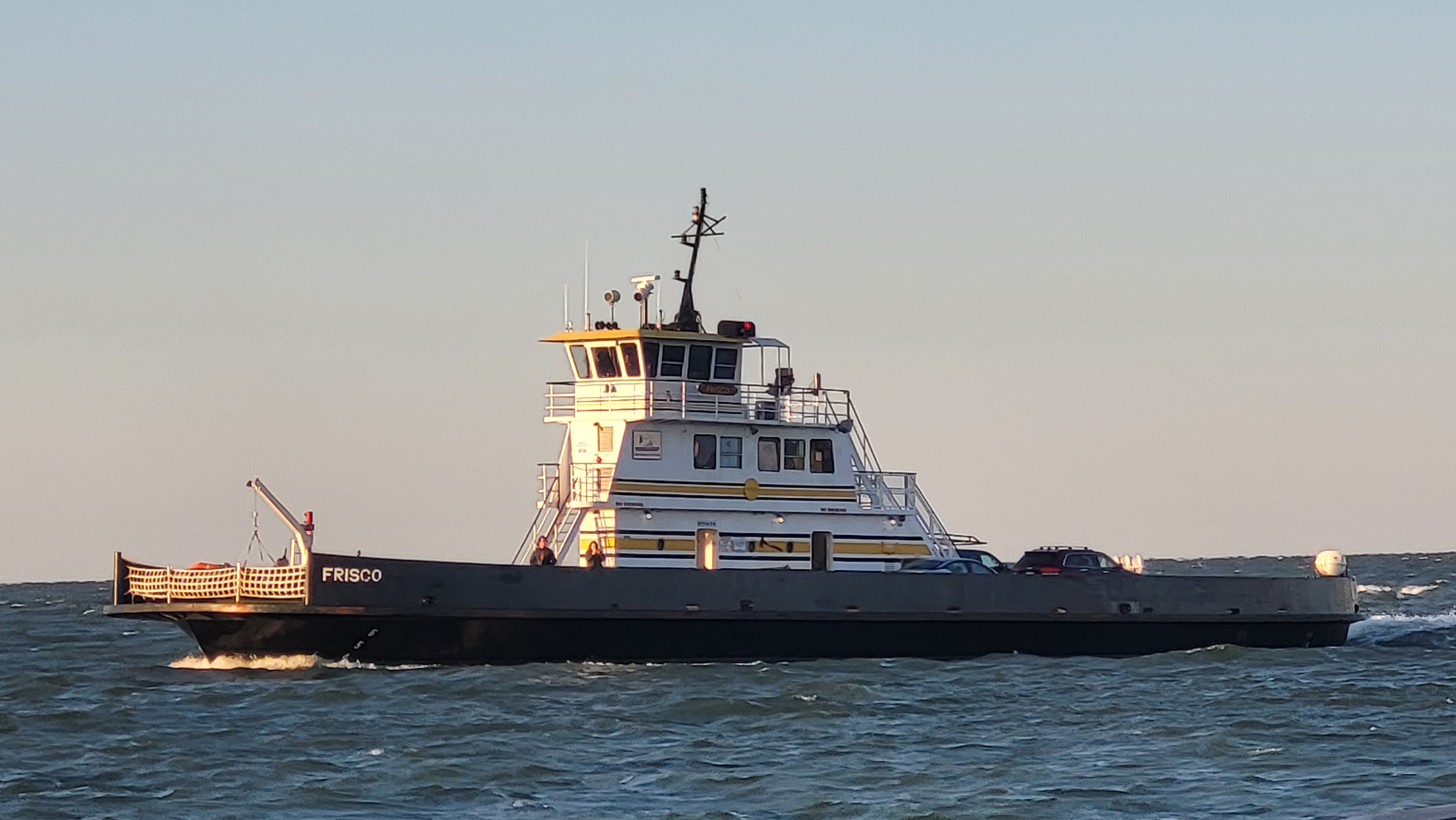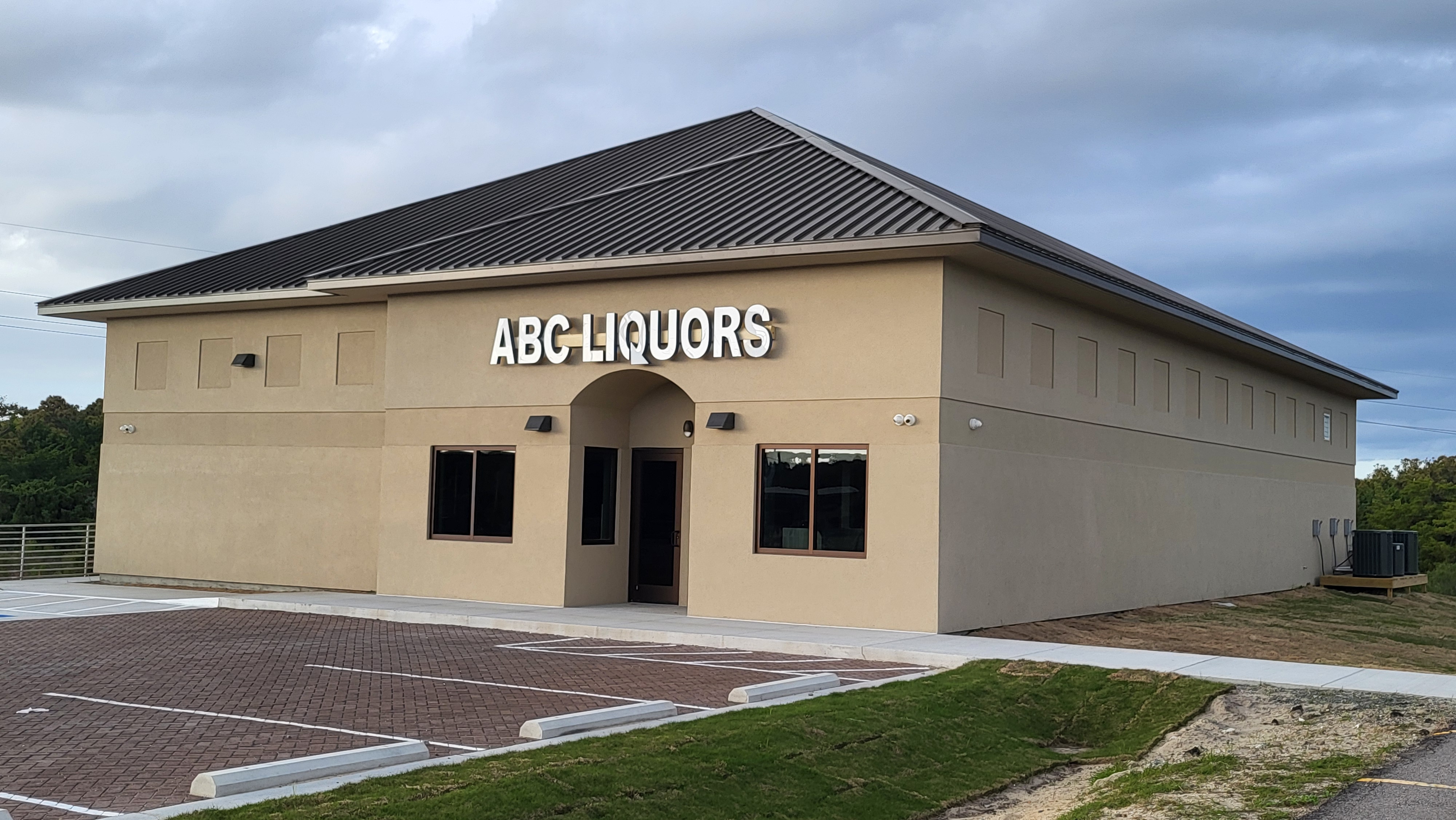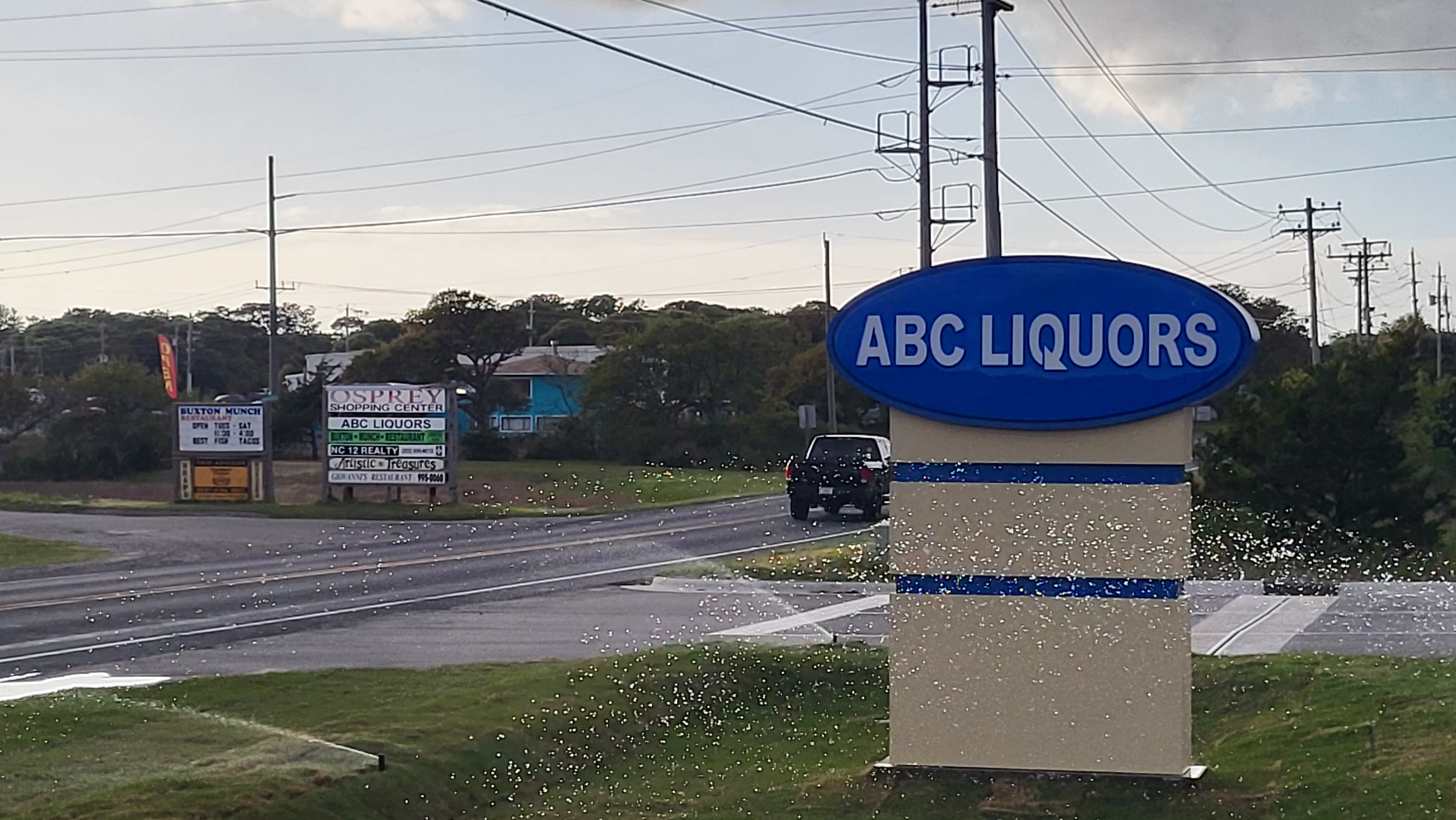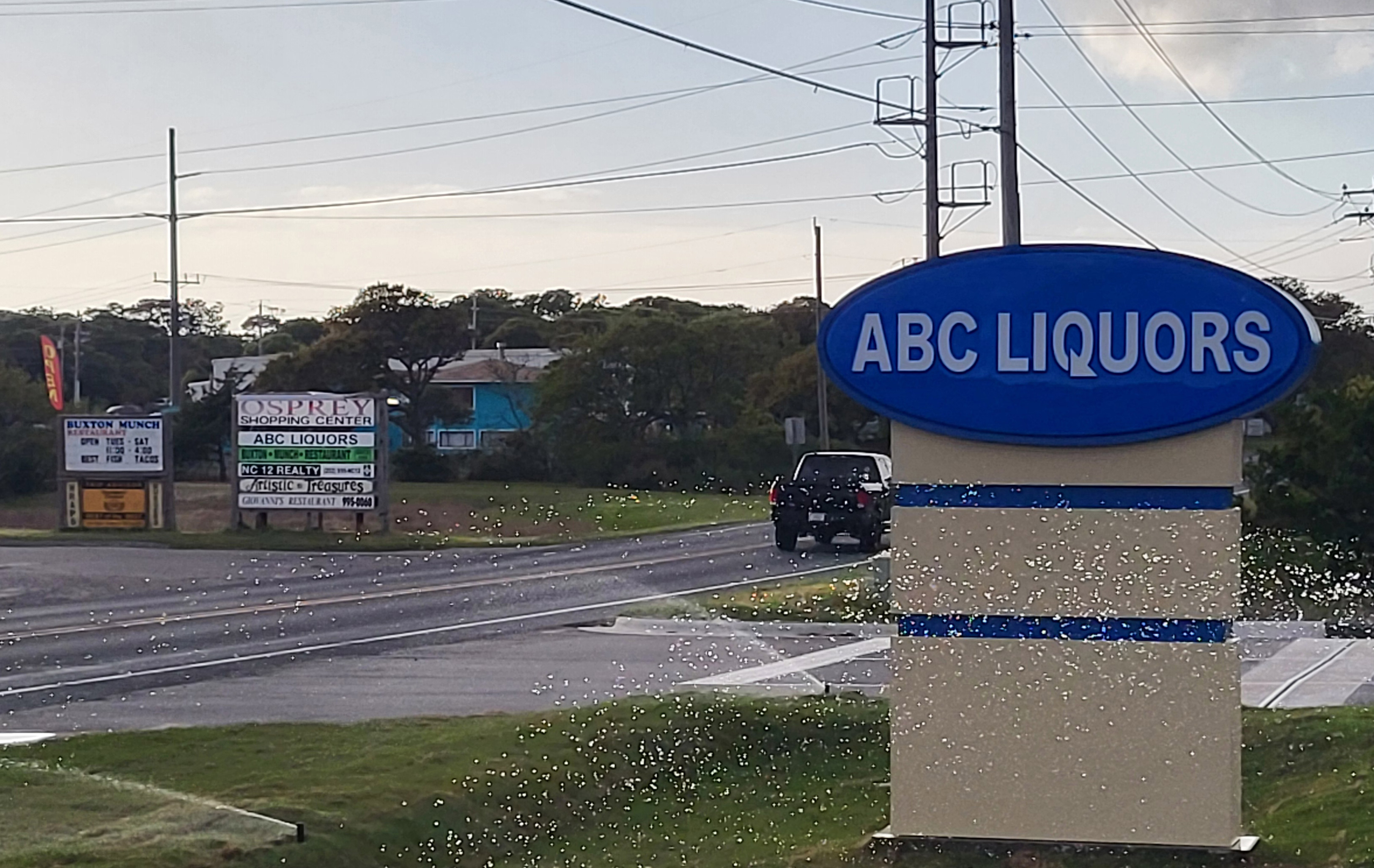Record number of sea turtles rescued on Ocracoke Island during cold spell
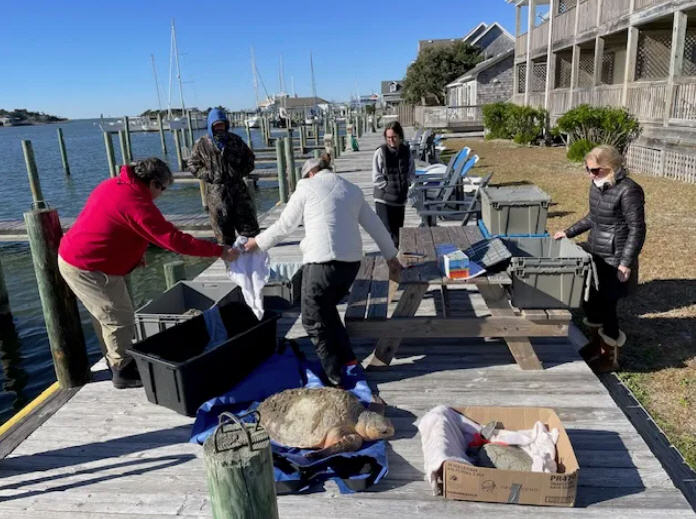
The number of rescued sea turtles on the Outer Banks this past week was, well, stunning. A cold spell that dropped water temperatures into the 40s Fahrenheit resulted in hundreds of sea turtles drifting onto the shores of the Outer Banks.
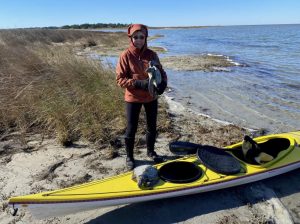
Sea turtles are ectotherms, meaning they are cold blooded and can’t regulate their body temperature like mammals. Instead, sea turtles must stay in warmer waters to maintain their metabolism. When their internal temperature drops below 52 degrees Fahrenheit, their physiological processes begin shutting down and they go into a state of hypothermic shock also known as “cold stunning”.
More than 550 sea turtles were rescued in just a few days last week, according to Tony Parisi, president of the nonprofit Network for Endangered Sea Turtles (N.E.S.T.), an all-volunteer organization dedicated to the protection and conservation of sea turtles and other marine wildlife on the Outer Banks.
“This was the highest number of rescues since 2016,” he said, comparing this year’s event to a cold stunning episode eight years ago affecting more than one thousand sea turtles. The intense Arctic blast so early in the season trapped many sea turtles in cold Pamlico Sound waters before they migrated to winter feeding grounds farther south along the Atlantic coast.
By far, the highest number of rescues occurred December 4 when 166 sea turtles were brought to the Buxton “staging site” located in the old U.S. Weather Bureau Station building on Buxton Back Road. There, about 25 volunteers worked to photograph, measure, and assign unique identification numbers to surviving cold stunned turtles. The turtles were then transported to the Sea Turtle Assistance and Rehabilitation (STAR) Center at the NC Aquarium on Roanoke Island for rehabilitation.
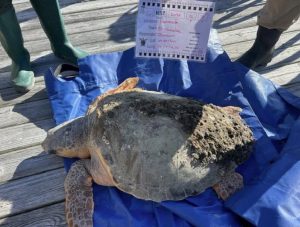
A stunned turtle training session took place on December 3 at the Ocracoke Community Center coordinated by NPS staffers Matt Janson and Ash Keiper-Kintz and drew 12 islanders. The N.E.S.T. and NC Wildlife Resources Commission trainers were not able to make it. Detailed training involves identifying sea turtle species, taking measurements, safe handling, filling out a data sheet and transport.
The cold spell was already underway and those volunteers in the next few days spread out through the island and by Sunday, rescued 33 individuals: 27 greens, 3 Kemp’s ridleys and 3 loggerheads. The highest number was on Saturday, December 7th with 14 green sea turtles, 3 Kemp’s ridleys, 3 loggerheads all safely delivered to STAR for rehab.
When water temperatures are forecast to dip below 50 degrees Fahrenheit, an alert is sent to the trained N.E.S.T. volunteers and they, along with NPS staff, brave the cold temperatures in boots and warm jackets to search for and rescue sea turtles.
Islanders Bill Monticone and Susse Wright are experienced kayakers. When it’s not too windy, they are able to search the Pamlico Sound side of the island in areas not possible to search on foot. On that Saturday, Monticone and Wright found so many, they called Janson who advised them to put them in a specific location that he could access from the road and he was able to load them into safe transport bins.
It became even more challenging when a bit north of Devil Shoals, the kayakers came across a floating adult loggerhead weighing close to 150 pounds. Word spread and turtle patroller Susan Aiken contacted her son Harrison who navigated his boat through the shallow sound to it. “We brought the big loggerhead and the 2 medium sized loggerheads and 3 greens via boat to Captain’s Landing,” she said.
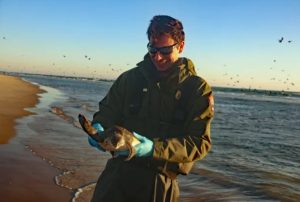
The giant (loggerhead) was not allowed on the ferry unaccompanied, so Paul Amburn and his wife Kasey brought their Volvo station wagon down to the dock and drove the 3 loggerheads to the staging area on Hatteras Island, said Aiken.
The last of the rescued on Ocracoke during this recent cold spell which has ended, was a small green on Sunday. Janson was told that STAR could no longer take anymore since they were filled to capacity. He contacted Matthew Godfrey, sea turtle biologist for NC Wildlife Resources Commission, who advised him to take it to South Point and release it into the outgoing waters of Ocracoke Inlet during ebb tide. The green was alert, and the release took place surrounded by hundreds of Double-crested Cormorants in the late afternoon with the volunteers cheering on.
The U.S. Coast Guard has taken the pressure off the overwhelmed STAR as they were able to release approximately 70 rehabilitated sea turtles in the Gulf Stream where the waters are much warmer. The Coast Guard releasing rehabbed turtles helps make space for additional injured or stunned turtles at the STAR Center.
“The vast majority of the rescued here are juvenile green sea turtles,” said Parisi, with Kemp’s ridleys a distant second. Most of both species weigh approximately 10 to 15 pounds, making transport a lot easier than an adult loggerhead. “The loggerheads found were unusual. The Pamlico Sound is a major wintering location for greens which forage primarily on subaquatic vegetation and algae.”

As much as this is a success story, not all sea turtles survived. At least ten dead ones were known to be on Ocracoke said Janson, but the priority was to save those alive and numbers will be tallied after the rescue efforts for those that did not make it.
All species of sea turtles found in North Carolina waters are federally listed as either threatened or endangered. State and federal agencies play a role in ensuring sea turtles long-term survival. “It is the strength of the collaborating organizations and volunteers that allows the NC Sea Turtle Stranding and Salvage Network to be successful in managing these kinds of stranding events,” said Godfrey. “The National Park Service, the N.E.S.T. volunteers, NC Aquariums, US Coast Guard, and many others have all played important roles in responding to these turtles.”
Cape Hatteras National Seashore weighed in by stating it appreciates the efforts of more than a dozen volunteers on Ocracoke to assist in this effort.
Cape Hatteras National Seashore Stranding Hotline: 252-216-6892
N.E.S.T. Hotline: 252-441-8622
